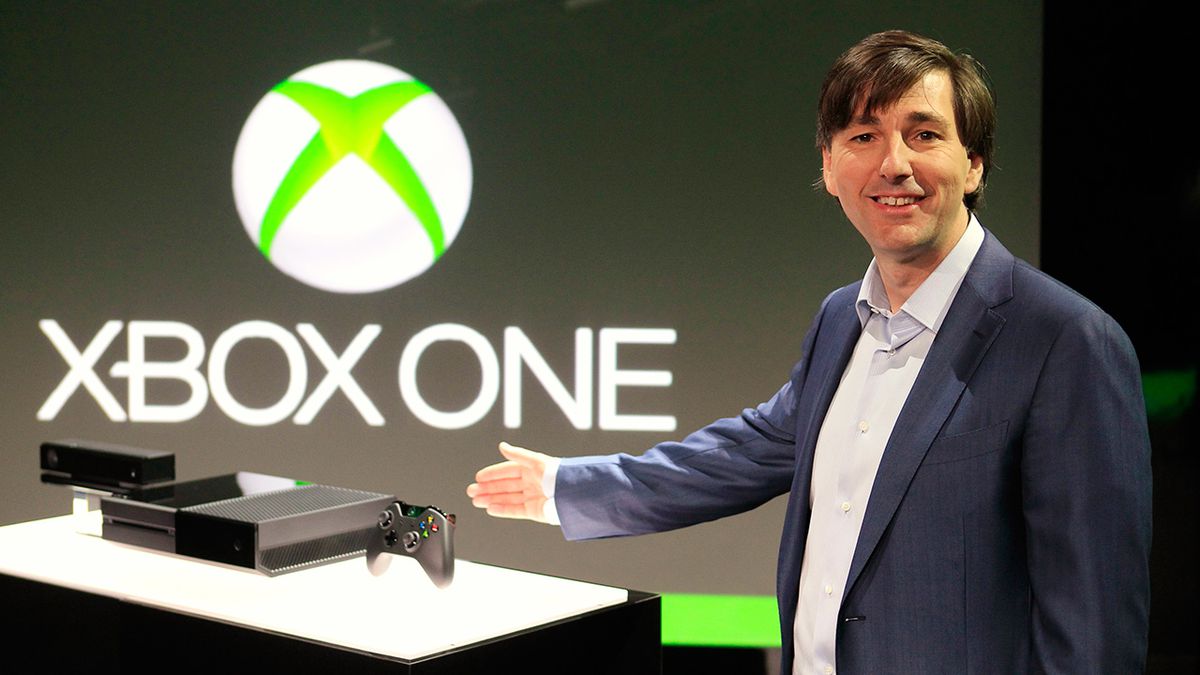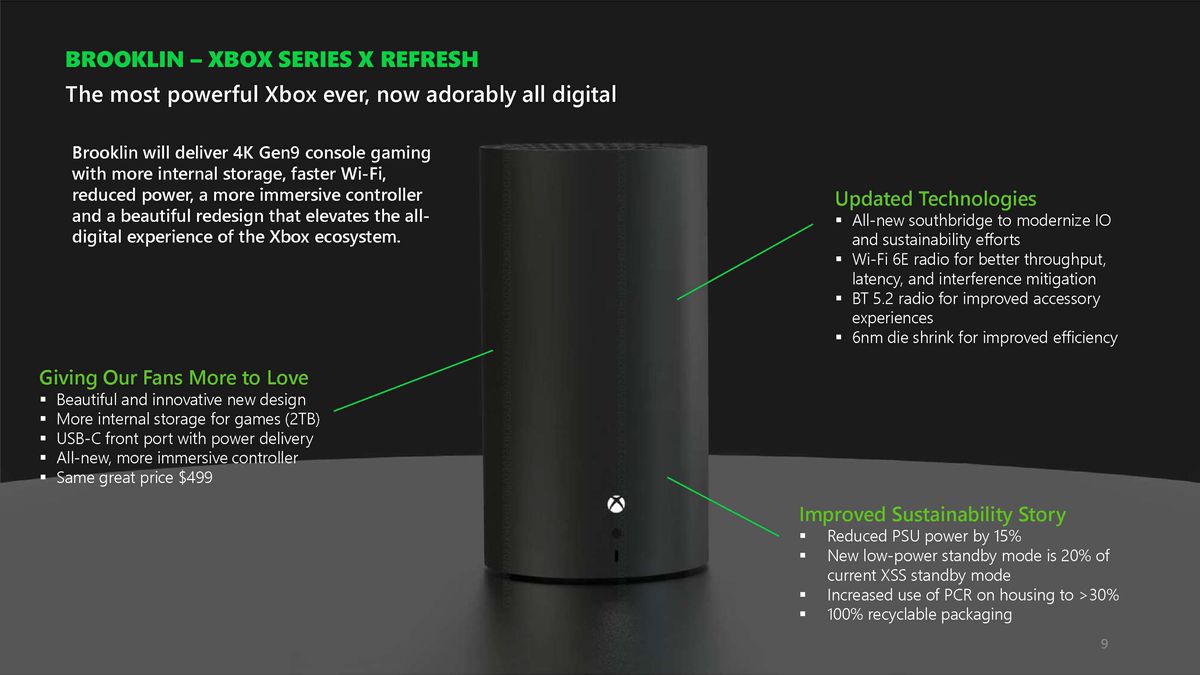It was just over 10 years ago that Microsoft’s gaming division — then led by Don Mattrick, an executive who sometimes seemed like he’d been replaced by a malfunctioning automaton — first revealed the Xbox One to the world, and explained that it heralded an all-digital future in which users would buy game licenses rather than games. (Even if they bought them on disc!) The policy was vilified by fans, excoriated by the press — “Microsoft kills game ownership and expects us to smile,” wrote my old boss at Eurogamer in one pitiless takedown — and openly mocked by Sony on a live E3 stage in perhaps the most devastating, and certainly the most memorable, finishing move of the console wars.
Humiliated, Xbox reversed its decision, but the reputational damage was done, and Xbox One’s fortunes were irreparably damaged. (Its underwhelming technical performance and botched multimedia strategy had something to do with it, too.) Soon, Mattrick was gone, replaced by the much more personable Phil Spencer, and Spencer — whose every utterance put gamers first — set about rebuilding trust in the Xbox brand and innovating its business model in other ways. And generally, he’s done a pretty good job at that.

But Mattrick wasn’t wrong. He had seen the future, it’s just that his timing was off — and apparently, Spencer knew it. That much is evident from leaked plans for a mid-generation refresh of the Xbox console range, which includes a redesigned, “all-digital” Xbox Series X with no disc drive. Its sister console, the Series S, is already a digital-only device. (Sony also makes a digital-only PlayStation 5.) So if Microsoft’s plan to replace the existing Xbox Series models in late 2024 comes to fruition, Xbox will be the first console manufacturer to leave physical media behind altogether. The next big question, then, is at what point Xbox will stop manufacturing and distributing game discs entirely.
A digital-only Xbox console generation is a hugely significant milestone, but over the last 10 years, we’ve all become so much more accustomed to assembling virtual libraries of games that this move isn’t likely to raise the same outcry it did in 2013. There’s an obvious convenience to the way digital distribution makes every game you’ve bought quickly accessible across multiple devices. It’s more sustainable than making and shipping discs, too (although it’s important to remember that the environmental cost of large downloads and cloud streaming is not insignificant). At any rate, the market — meaning us, people who buy and play games — seems to have decided. What Microsoft’s decision tells you above all else is that Xbox owners’ appetite for buying physical games has shrunk to the extent that it’s financially feasible for the company to ignore it completely.
Thanks to Valve’s visionary creation of Steam in the early 2000s, PC gaming — a sector Spencer returns to again and again in his public comments — had abandoned physical releases even before Mattrick’s Xbox made its disastrous proclamation a decade ago. But the console business has always had a closer relationship with retail, and it seems Microsoft’s competitors in that space will be slower to take the plunge. Sony appears to be hedging its bets: It’s reported that the mid-generation refresh for PlayStation 5 will have an optional, detachable disc drive. Meanwhile, it’s said that Nintendo, ever the traditionalist, is continuing to support game cartridges with its successor to the Switch.

Microsoft has clearly decided that the games retail business has deprecated to the point that it can cut ties. The upside for the company is obvious: It becomes not just the sole licensor but the sole distributor of Xbox console games, cutting Amazon, GameStop, and everyone else out. It will also have more freedom on price; retailers insist on a fixed recommended retail price that they can choose to undercut if they wish, but that the digital storefronts are stuck with. Hence the situation that digital copies of new releases cost a full $70, while physical copies are often available at a discount of around $10.
In theory, Microsoft could choose to relax its pricing, pass savings on to players, and compete on price with Steam, where games are, on average, cheaper than on the console storefronts. Given the skyrocketing costs of game development, however, that is extremely unlikely to happen. Instead, without the option to bargain-hunt among retailers, or to buy pre-owned games, Xbox owners will likely end up paying more for most games as a result of this change.
Unfortunately, there are few upsides for consumers in the removal of physical games as an option. Digital games have no resale value, retailers will suffer, and there’s a very concerning knock-on effect for game preservation. Digital collections may feel permanent, but in reality they only persist at the whim of storefront operators, while games can be (and often are) delisted by their publishers — a fate soon to befall Marvel’s Avengers, for example. In an all-digital world, unless you happen to already own a license to a delisted game — or, in some cases, have it downloaded somewhere — it becomes completely inaccessible. In this future, there will be no way to play delisted games at all. They’re lost to time.
Microsoft’s move to create the first all-digital console gaming platform has always felt inevitable. It’s where the technology is headed, and it seems to be what people want. But with it, the gaming industry loses a link to its community — and to its past — that can’t ever be restored.
- SEO Powered Content & PR Distribution. Get Amplified Today.
- PlatoData.Network Vertical Generative Ai. Empower Yourself. Access Here.
- PlatoAiStream. Web3 Intelligence. Knowledge Amplified. Access Here.
- PlatoESG. Carbon, CleanTech, Energy, Environment, Solar, Waste Management. Access Here.
- PlatoHealth. Biotech and Clinical Trials Intelligence. Access Here.
- Source: https://www.polygon.com/23881253/xbox-series-x-all-digital-no-disc-analysis



